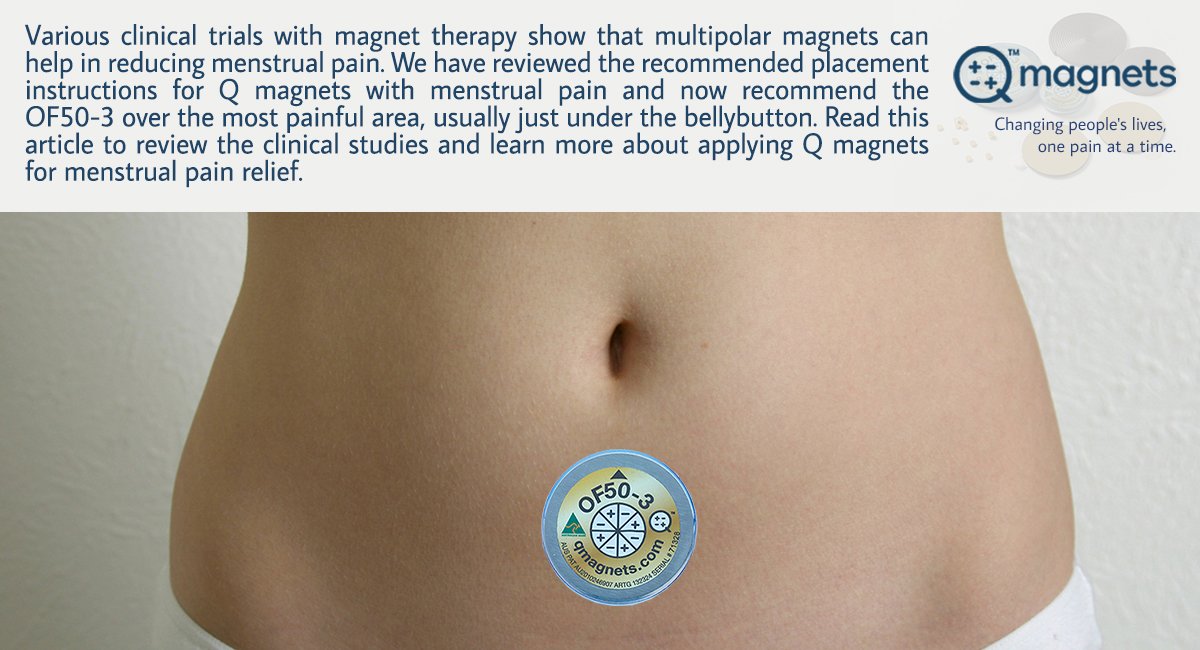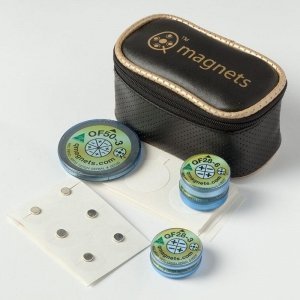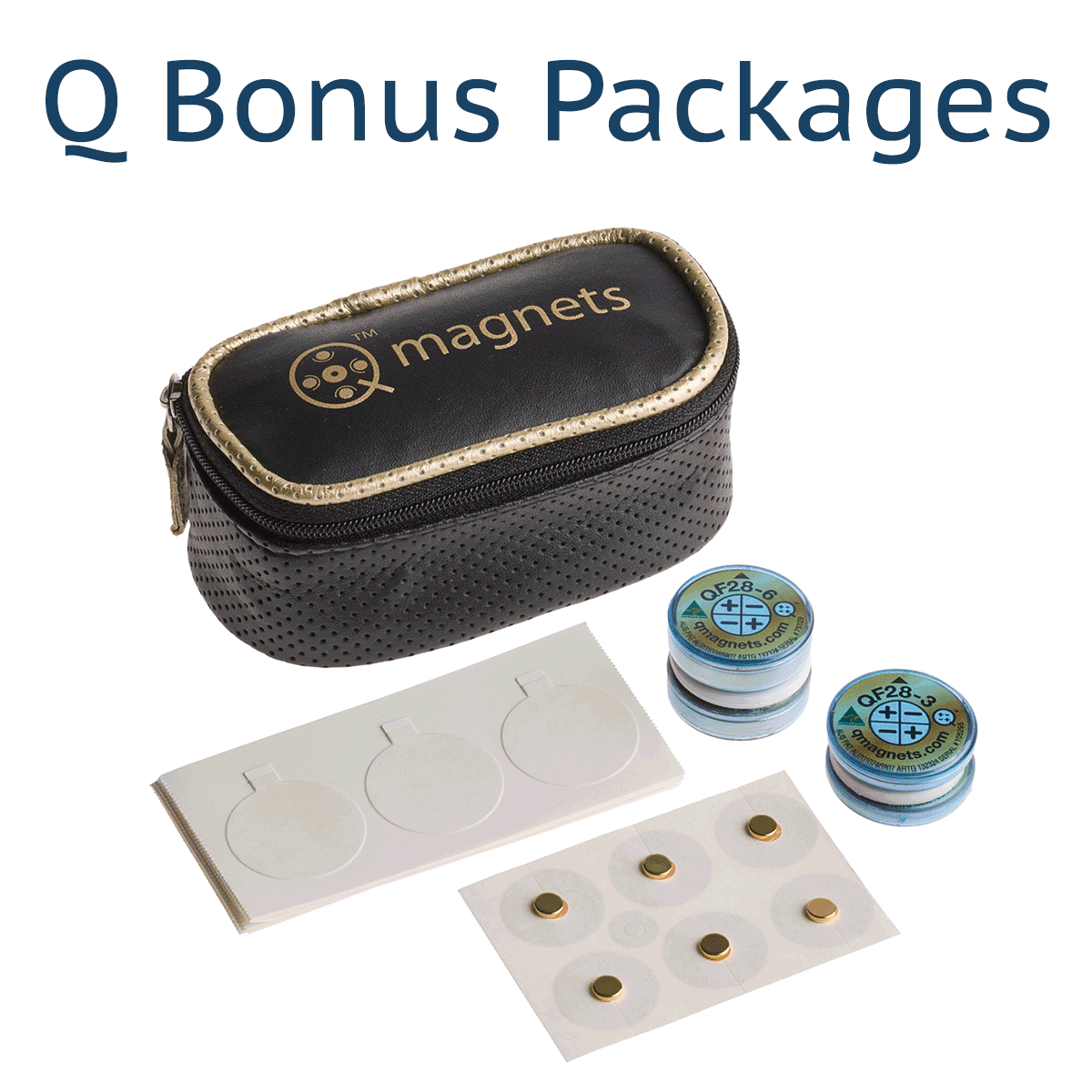Various clinical trials with magnet therapy show that multipolar magnets can help in reducing menstrual pain. Read this article to review the clinical studies and learn more about applying Q magnets for menstrual pain relief.
Back in 2005, a randomized control trial was conducted by Eccles et, al. with a bipolar magnet placed under the bellybutton to assess the efficacy on menstrual pain.1 The benefit over placebo was statistically significant, but due to the small number of subjects, a potential conflict of interest with the author and insufficient data, the outcome wasn’t taken seriously.
Then in 2020 was pilot trial was conducted with 24 female subjects, which this time addressed many of the concerns with Eccles et al and did show efficacy over placebo.
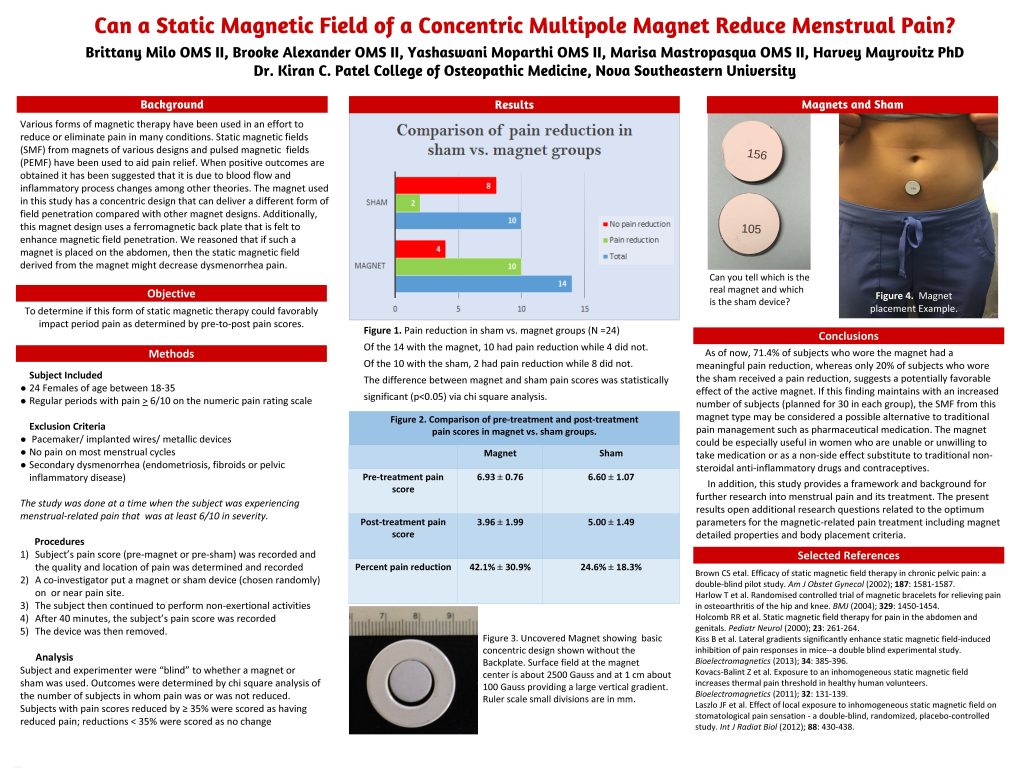
Based on the significance of the 2020 pilot study, Mayrovitz et al (2021) published a very nice double-blinded randomized controlled trial using a Concentric Multipolar Magnet to assess the benefit for pain reduction.2
Subjects needed to be experiencing pain on the day, at or greater than 6 out of 10, on the numeric pain rating scale (1 to 10). There was a total of 36 subjects, of which 19 were in the active group and 17 in the sham group. They placed the multipolar magnet on the most painful point below the bellybutton for a period of 40 minutes, after which their pain levels were again assessed.
Subjects required a minimum pain reduction of 35% to be considered a significant pain reduction. Of the active magnet group 11/19 (58%) experienced significant pain relief, whereas only 3/17 (18%) experienced significant pain relief from the group who wore the placebo.
Active Group: 11 out of 19 or 58% experienced significant pain relief.
Placebo Group: 3 out of 17 or just 18% experienced significant pain relief.
The study concluded, unlike the current pharmacological or invasives methods discussed, the static magnetic field induces the body’s natural mechanism of reducing pain instead of using medications, hormones, or implantable devices.
The results of this study are quite significant, when combined with the results of previous studies. There are two takeaways.
- This is another study using multipolar magnets showing benefits of pain relief.
- We have reviewed the recommended placement instructions for Q magnets with menstrual pain and now recommend the OF50-3 over the most painful area, usually just under the bellybutton.
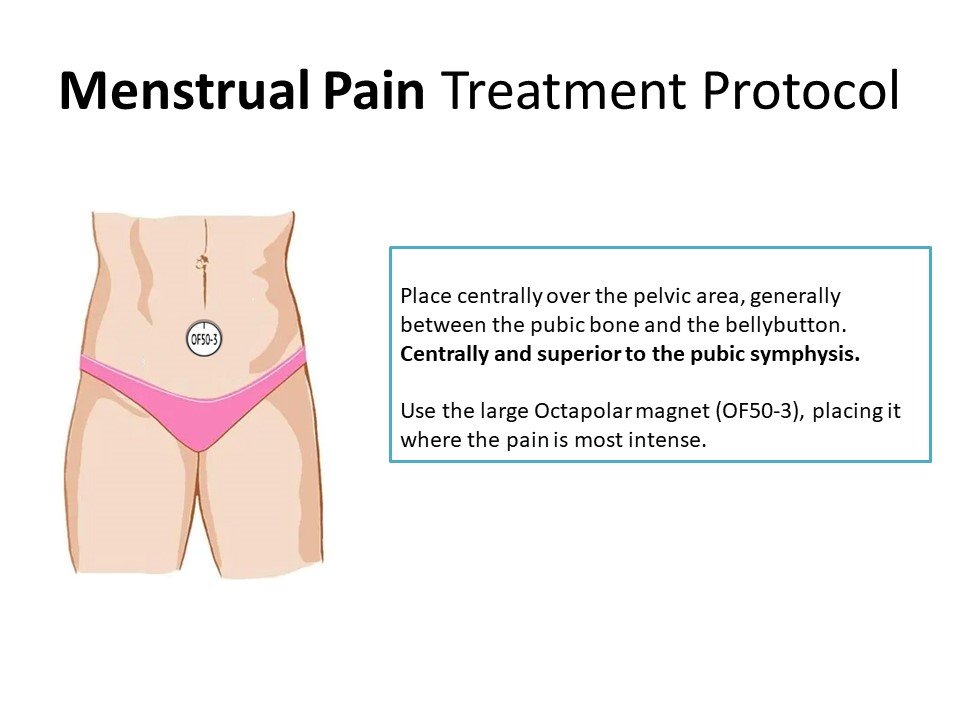
References
- 1.Eccles N. A randomized, double-blinded, placebo-controlled pilot study to investigate the effectiveness of a static magnet to relieve dysmenorrhea. J Altern Complement Med. 2005;11(4):681-687. doi:10.1089/acm.2005.11.681
- 2.Mayrovitz H, Milo B, Alexander B, Mastropasqua M, Moparthi Y. Effects of a Concentric Rare-Earth Magnet on Menstrual Cycle Pain: A Parallel Group Randomized Pilot Study. Cureus. Published online January 20, 2021. doi:10.7759/cureus.12801

